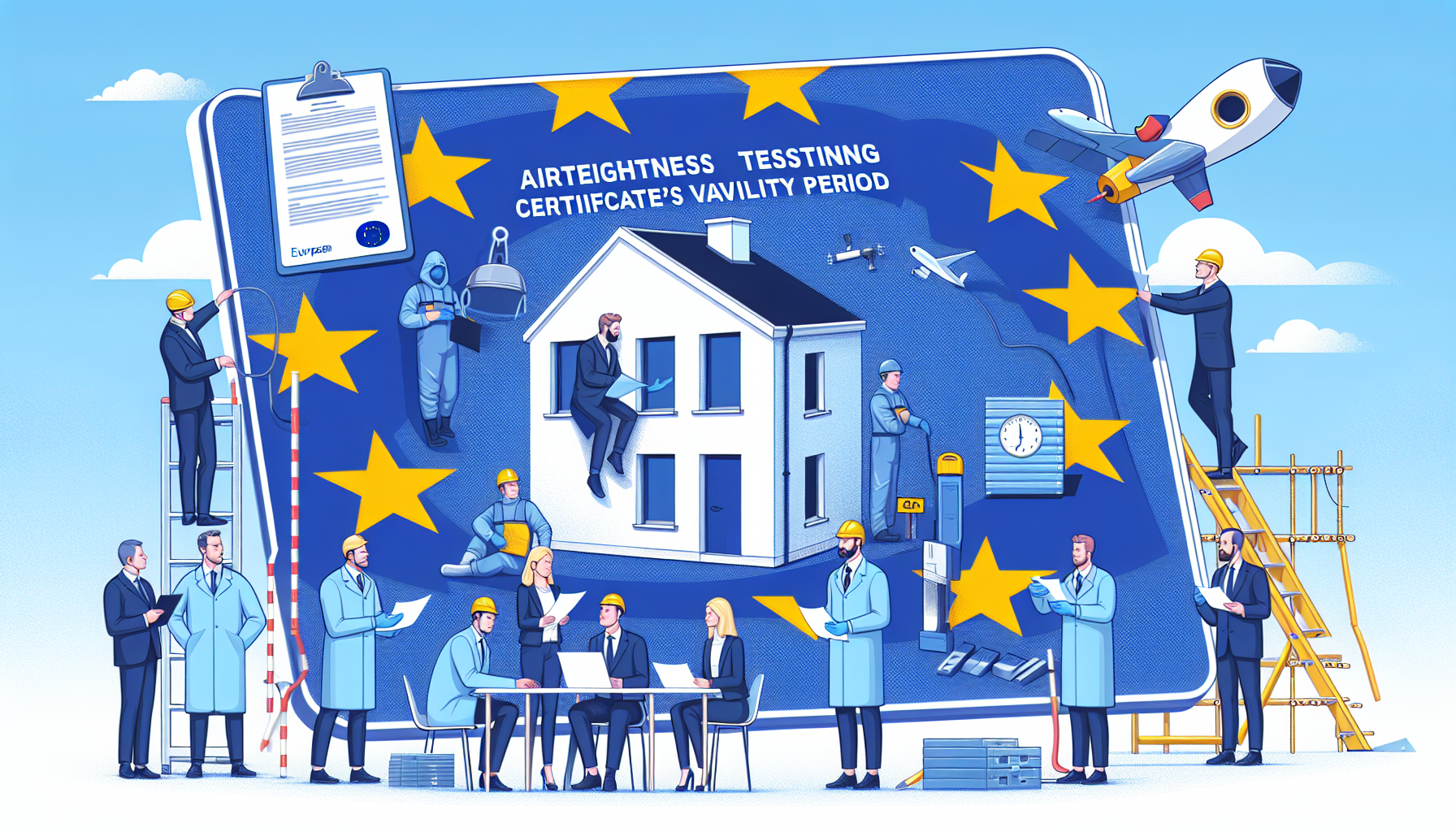Understanding the Validity of an Airtightness Test Certificate
In today’s world, where energy efficiency is crucial for both environmental sustainability and economic savings, airtightness testing has become more critical than ever. An airtightness test certificate is a vital document confirming that a building meets required air-leakage standards. However, the validity of this certificate is not straightforward and varies based on various factors. This article delves into the nuanced understanding of this certification, its duration, and the qualifications of those who perform these tests, with a focus on how Ratio Seven can help you navigate this complex process.
Certification and Validity: More Than Just a Date
- The airtightness test certificate is essentially a snapshot in time, providing assurance that a building’s envelope has been tested for air leakage and complies with set standards. However, this assurance holds true as long as the building remains unchanged. Renovations, modifications, or any form of physical changes can impact a building’s airtightness, rendering the certificate non-representative of the current condition.
- There is no universal expiry date on airtightness test certificates. The certificate is valid indefinitely in the absence of any significant structural changes. This makes it essential for building owners to be keenly aware of any activities that might affect their building’s airtightness characteristics.
Tester Certification: Ensuring Continuous Competence
The credibility and reliability of an airtightness test heavily depend on the expertise of the professionals conducting it. Tester certification is a key aspect of guaranteeing the competence and accuracy of testing procedures.
- Certifications from respected organisations such as FLiB (Federation of European Heating and Airconditioning Associations) come with validity periods, typically of three years. To maintain their standing, testers must demonstrate continued competence. This is often achieved through participation in industry seminars, advanced education programmes, or submission of current test protocols for evaluation.
- Ensuring that your building is tested by a professional with up-to-date certifications is crucial, as it informs stakeholders of the tester’s proficiency and adherence to evolving testing standards.
Ratio Seven and Airtightness Testing: A Trustworthy Partnership
Ratio Seven Limited, an established energy consultancy service based out of Nantwich, Cheshire, UK, provides a broad spectrum of services, including state-of-the-art airtightness testing. Founded in 2008 by Colin Francomb, Ratio Seven has carved out a respected position in the UK’s energy consultancy sector.
Company Overview
- With over a decade of experience, Ratio Seven collaborates with various housebuilding companies, delivering airtightness testing and other energy-related consultancy. Whether for rural housing developments or extensive urban residential projects, Ratio Seven ensures buildings are tested against stringent airtightness standards, ultimately contributing to energy efficiency and sustainability.
Services
- At Ratio Seven, we understand that airtightness testing is not a one-size-fits-all service. Our highly trained professionals utilise the latest methodologies and tools to conduct tests, producing detailed reports that inform decision-makers about their building’s energy performance and regulatory compliance. These reports serve as a valuable resource for meeting building codes, obtaining energy efficiency certifications, and achieving green building ratings.

The Impact of Airtightness Testing
The benefits of achieving a valid airtightness test certificate extend far beyond compliance. They represent:
- Enhanced Energy Efficiency: Minimising air leakage reduces heating and cooling costs, resulting in substantial energy savings.
- Improved Comfort: Better airtightness leads to more consistent indoor temperatures and improved comfort for occupants.
- Environmental Benefits: Increased energy efficiency contributes to lower carbon emissions and a reduced environmental footprint.
- Marketability: Buildings with valid airtightness certificates often fetch a premium in the property market due to their confirmed energy-efficient status.
FAQs
1. Can a building owner alter their structure’s airtightness?
Yes, building owners can change their building’s airtightness, often inadvertently, through modifications or additions. These changes might compromise the integrity of the original airtightness test certificate, necessitating a retest to ensure compliance.
2. Is it necessary to retest after renovations?
Absolutely. Any significant renovation or modification potentially alters a building’s airtightness, requiring a new test to ensure the building still meets the required standards. This ensures continued efficiency and compliance with building regulations.
3. What should be considered when selecting an airtightness tester?
When choosing an airtightness tester, verify their certification status and ensure it is up to date. Consider their experience and reputation within the industry. Companies like Ratio Seven, with extensive experience and qualified professionals, ensure that your testing is both reliable and compliant.
Navigating the Validity Maze with Ratio Seven
While an airtightness test certificate might not possess a fixed expiration date, the surrounding context is critical to its validity. A building’s integrity, ongoing tester certifications, and the impact of any structural modifications all play vital roles in maintaining the certificate’s relevance and legitimacy. By choosing a reputable company like Ratio Seven, building owners can rest assured that their building’s airtightness testing is in expert hands, paving the way for enhanced energy efficiency and sustainability.
Our commitment at Ratio Seven extends beyond mere certification—it’s about fostering energy-efficient practices that benefit both our clients and the environment for years to come.




